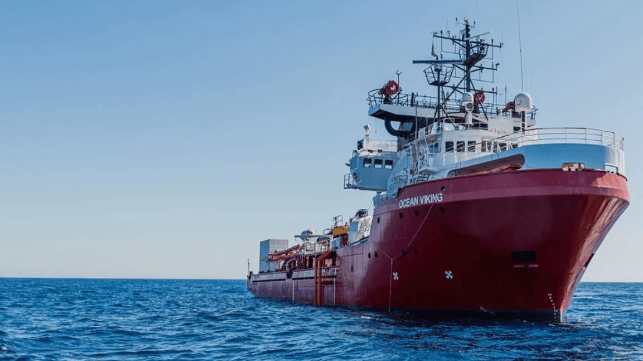Italy's New Rules Put NGO Rescue Vessels on Long, Frequent Voyages

The administration of Italian Prime Minister Georgia Meloni has agreed to a new port of refuge policy for migrant rescue vessels, which have been a longtime thorn in the side for Italy's political right.
The cabinet decree requires vessels to ask for a port of refuge and sail to it "without delay" after carrying out the rescue. This is a change from current practice: historically, these operators stay on station for several days after their first rescue of the voyage, collecting survivors from additional rafts until full. The new requirement will force rescue vessels to return to port after each individual rescue, which will have the overall effect of lowering capacity in the migration zone.
In addition, the crew of the rescue vessel must inform survivors that they can apply for asylum in any EU member state, not just in Italy. Violations of the new policies come with a fine of up to $50,000, and repeat offenders risk the confiscation of their vessels.
Long-distance refuge
NGO operator SOS Mediterannee has reported an additional new practice that could reduce rescue vessel time on station. On December 27, when the NGO vessel Ocean Viking requested a port of refuge for her latest voyage, the Italian maritime rescue coordination center swiftly gave the green light to berth at La Spezia, then at the Port of Ravenna - nearly as far away from Ocean Viking's position as possible while still remaining in Italy. The port was 900 nautical miles and four days away from her position, on the far side of the Adriatic.

that matters most
Get the latest maritime news delivered to your inbox daily.
A round trip voyage from the Libyan rescue zone to Ravenna would take approximately one week longer than the typical voyage to Sicily. If implemented as a regular practice, longer and more frequent voyages would increase operating cost per rescue, limiting rescue NGOs' effectiveness without the legal and political difficulties of an explicit ban.
"With the new rules imposed by the Italian government on NGO vessels, we will be forced to leave relief areas in the Mediterranean Sea unguarded, with an inevitable increase in the number of dead," said MSF (Doctors Without Borders) in a statement. "Imagine a car accident with many injured and ambulances forced to take them to hospitals in another region. At some point there will be no more ambulances available."
